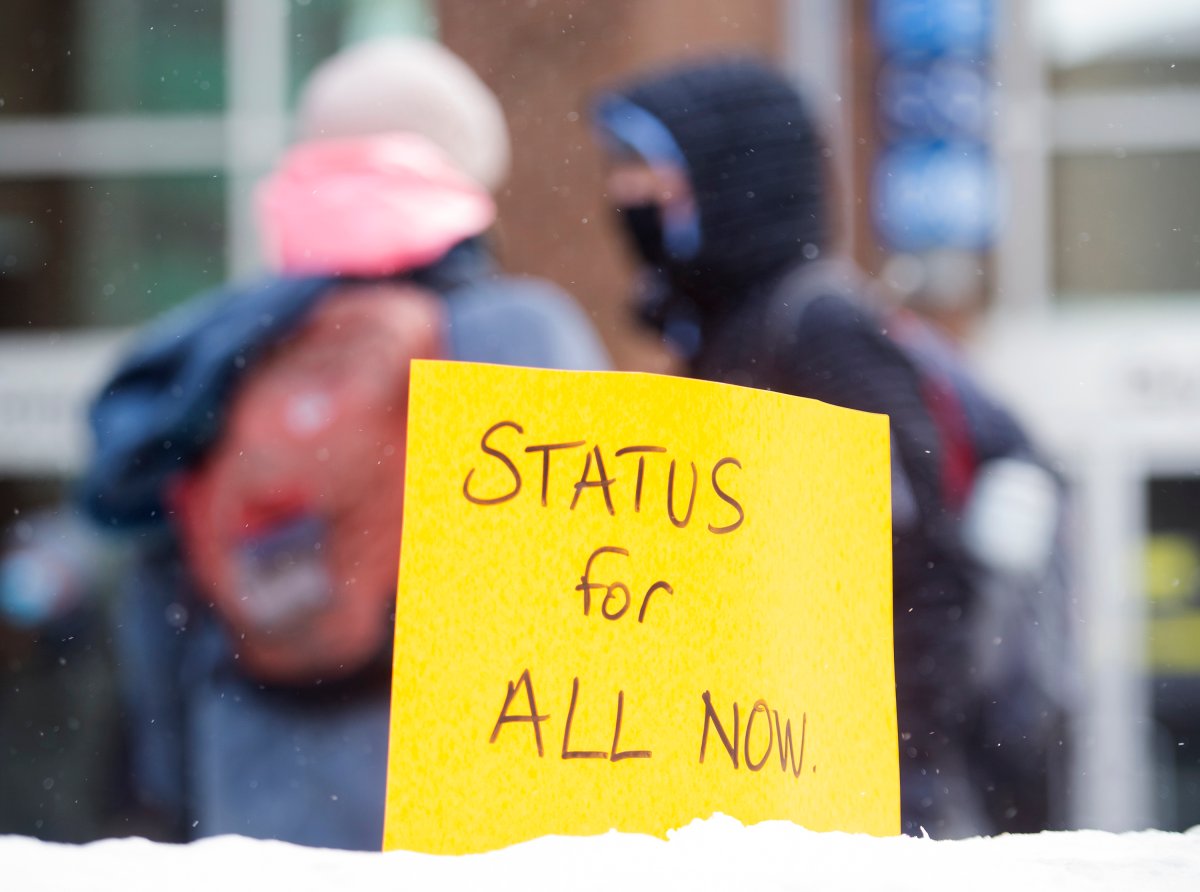Update: This story has been updated with a response from Immigration, Refugees and Citizenship Canada.

Editor’s note: The survey completed by the Migrant Rights Network is not scientific and does not reflect the national eligibility of all migrant workers and international students. The story has been updated to reflect that information.
Advocates say the government’s new immigration program targeted at essential temporary workers and recent international graduates doesn’t go far enough and that many are excluded.
The Migrant Rights Network, Canada’s largest migrant-led coalition, launched an online voluntary survey tool for migrants and graduates to determine if they qualify for the federal government’s special program. Between April 15 and May 1, more than 3,000 people responded. The organization then analyzed the results, which are not scientific or nationally representative.
It found that students and workers face various barriers to access the new one-time immigration program announced by Immigration Minister Marco Mendicino in April.
Forty-five per cent of migrant workers and 35 per cent of international graduates who filled out the survey found they were not eligible for the program that launches on Thursday, according to the Migrant Rights Network.
Nearly half of international students and 67 per cent of migrant workers said they do not have the language test results required to apply, according to the survey. It also found that the cost of the application, completing language schooling and tests, and other necessary paperwork is prohibitive for some.
This is the situation faced by a migrant farm worker who goes by Gary. He came to Canada in 2013 from Mexico and has been working on farms in Ontario since. We are not disclosing Gary’s full identity because he fears reprisal from his employer and possible deportation.
- Posters promoting ‘Steal From Loblaws Day’ are circulating. How did we get here?
- Video shows Ontario police sharing Trudeau’s location with protester, investigation launched
- Canadian food banks are on the brink: ‘This is not a sustainable situation’
- Solar eclipse eye damage: More than 160 cases reported in Ontario, Quebec
He says he is unable to access the program and be reunited with his family because he has not completed the English language test required and cannot afford the cost of language schooling, the test and the application.
Gary says he has taught himself basic English over the years, but that the reading and writing requirements of the test required are too difficult and would require additional schooling, something he cannot afford.
“We don’t need small, one-off, exclusionary pilot programs, we need an overhaul of the immigration system so that every resident in the country has the same immigration status and therefore the same access to labour rights, health care and other essential services. These rights are a matter of life and death,” says Syed Hussan of the Migrant Rights Network secretariat.
The organization says the program also excludes undocumented people, refugees, students and migrants in Quebec — a total of more than one million people. Quebec’s immigration process differs from other provinces. It retains control over who is able to immigrate to the province. People in Quebec are able to apply to the program, if they intend to leave the province and reside elsewhere.
On May 6, the immigration department is set to begin accepting up to 50,000 applications from health-care and other essential workers and 40,000 applications from international graduates who meet the government’s criteria. In total, the program will grant permanent residence to 90,000 people.
The new temporary program is designed to help the government meet its goal of accepting 401,000 new permanent residents this year.
“The pandemic has shone a bright light on the incredible contributions of newcomers,” Immigration Minister Marco Mendicino said at the time. “These new policies will help those with a temporary status to plan their future in Canada, play a key role in our economic recovery and help us build back better.”
To apply to the new program, workers must have been employed for at least one year in Canada in a health-care profession or another government-approved essential role. International graduates must have completed a Canadian post-secondary program within the last four years.
Workers must also be currently employed in Canada through a valid work permit, have an English test result and all their documents at the time of application, requirements that are challenging to meet due to the COVID-19 pandemic. Embassy closures, limited spots for language training and tests, and mass layoffs due to the pandemic have also resulted in people not being able to apply, the organization said.
The Migrant Rights Network estimates the cost of the application and other paperwork could cost thousands of dollars and many workers earn minimum wage. The cost of the application itself has not been announced yet.
Many migrant workers are not required to have an English language test to come to Canada to work.

“The new pathway to permanent residency for essential workers and international graduates is among the most inclusive and innovative programs ever launched by IRCC. Its size, speed and scope are unprecedented,” said Alexander Cohen, spokesperson for Minister Mendicino. “From bricklayers to bus drivers to custodians, the range of eligible occupations has never been more inclusive.”
Cohen says the immigration department is aware of the challenges of accessing language testing at this time and will be adding more testing slots soon. He also said they are open to offering other solutions to make language exams more accessible going forward.
“We will continue to blaze new trails to welcome more newcomers because we know that immigration is key to Canada’s economic recovery and long-term prosperity,” Cohen said in an emailed statement.
Migrant Rights Network is calling on the federal government to grant all migrant and undocumented people in Canada permanent resident status and that all working-class migrants are able to arrive in the future with permanent resident status.
The organization also said that since the program was announced, chaos and confusion have swept through these communities and that people are at risk of being taken advantage of by bad actors.




Comments